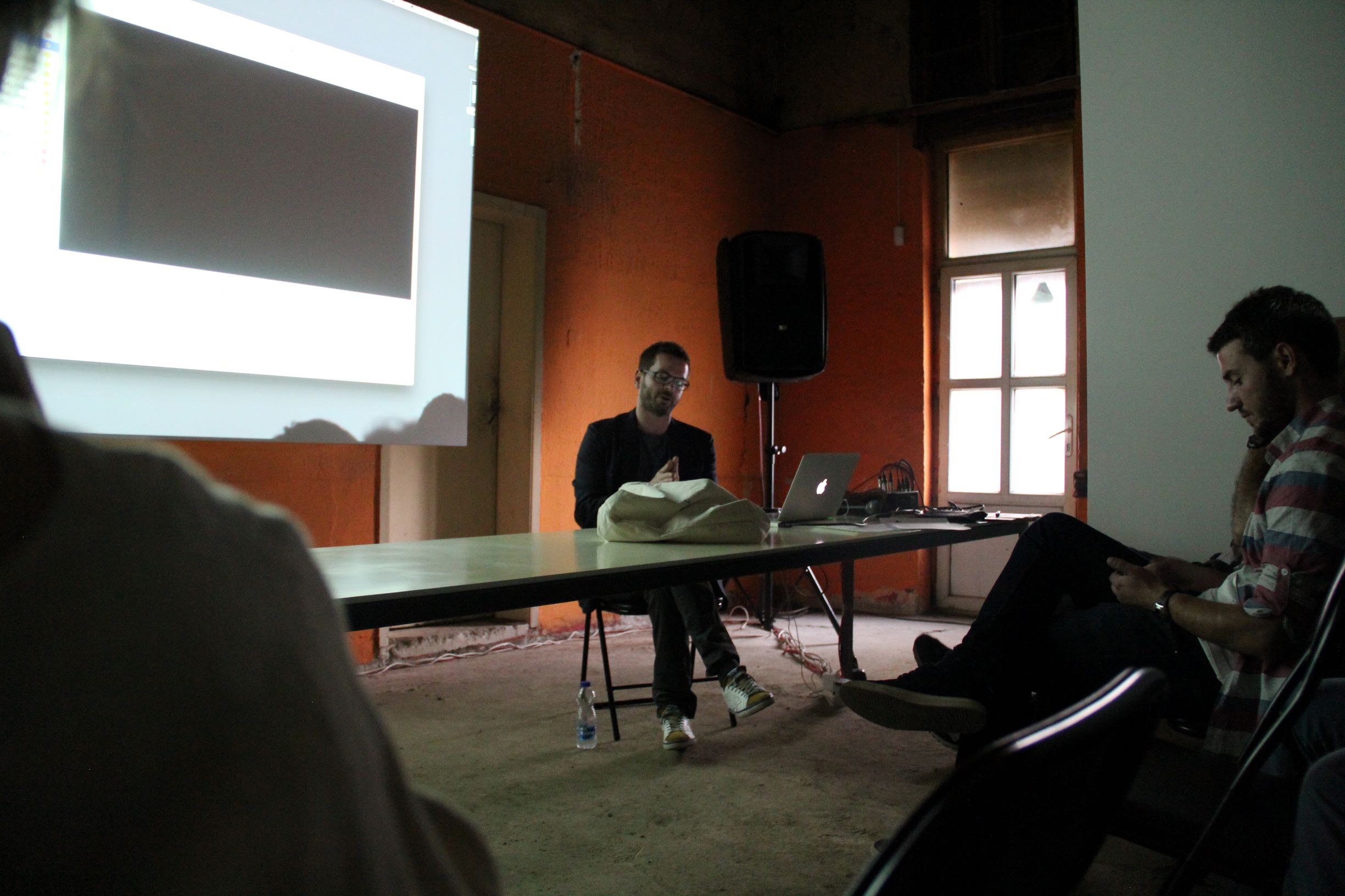
Summer School as School
3- 18 July, 2016
Public Program
Monday, 4 July 2016 at 19:00
Anri Sala: Rupture, Syncopation and Bridges
Venue: Boxing Club
Mark Isaku St. Prishtina
Republic of Kosovo
My personal understanding of rupture — rupture in meaning, rupture in syntax, rupture in narrative, rupture in beliefs — goes back to my experience of Albania in the 1990s, when rapid and abrupt political and social changes not only overturned the existing order of things, in terms of political upheaval and social disarray, but often also overwhelmed or drove astray some of the pillars of common sense. Since then rupture, divergence and temporal dissent, as well as overlapping/overwriting between connotation and context, have been important aspects in my practice as an artist. Rupture and syncopation may also cultivate an understanding of non-narrative modes of expression and understanding ruptures in time and narrative conveys a sense of relativism to rupture, because in order to understand that your rupture is not everybody’s rupture, you have to step inside someone else’s continuity.
Syncopation involves a rhythm that disturbs our perception of time as a regular flow, producing the feeling that time may be coming out of joint. In music, syncopation is intrinsically connected to the offbeat. Contrary to the beat, the offbeat is the stressing or the accentuation of the least expected moment within a time measure, producing momentum in what could be perceived as its weaker part. The offbeat and the beat are completely dependent on each other in that there is no awareness of time without rhythm, and there is no rhythm that does not contain both. What interests me in syncopation—this interval or gap between the offbeat and the instant before the beat establishes itself—is how it pulls the beat, how it resists becoming the beat, how it offers an alternative space adjacent to it, whether in a rhythmic situation or, figuratively, a social or political one.
The bridge (in jazz or pop song structures), like the offbeat, suspends the momentum of the song, yielding alienation instead of confirmation and familiarity. Every song we love makes us feel complete, in the sense that within the song we feel at home. While it lasts, it surrounds us, it gives us everything. I like imagining the bridge as something that pierces the bubble and lets you catch a glimpse of the outside. It’s like a piece of subjectivity that breaks with the established subjectivity of the song. Bridges, after all, are also moments of drifting within a song, and in this sense parallel the dérive of the Situationists—for example, the way one might ramble through the city, using the urban space not as originally planned but against the prescribed flow, creating situations that can liberate us from everyday thought or experience.
These parameters inspire me: this idea of questioning the given flow, or resisting what has already been established. Ruptures, bridges and syncopation go against the expected. They carry an energy that I would call almost political.
Berlin-based artist Anri Sala was born in 1974 in Tirana, Albania. Recent solo exhibitions include 'The Present Moment (in D)', Haus der Kunst, Munich, Germany (2014); 'Anri Sala: Two Films', Museum of Contemporary Art, Detroit MI (2012); Louisiana Museum of Modern Art, Humlebaek, Denmark (2012); Centre Pompidou, Paris, France (2012); '1395 Days Without Red', Irish Museum of Modern Art, Dublin, Ireland (2012); National Museum of Art, Osaka, Japan (2011); Serpentine Gallery, London, England (2011) and Musée d'Art Contemporain, Montreal, Quebec (2011).
Sala was awarded the Prix Gilles Dusein in 2000; the Young Artist Prize at the Venice Biennale in 2001 and the Absolut Art Award, Stockholm, Sweden in 2011. In 2013, he was selected to represent France at the 55th Venice Biennial with 'Ravel Ravel Unravel' and, most recently, Sala was the recipient of the Vincent Award, Den Haag, The Netherlands (2014).